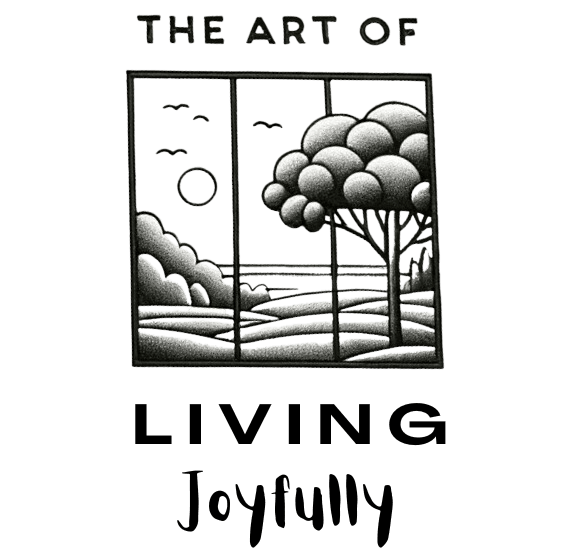Stress Management After 50: Embrace Joy, Resilience & Peace With the Best Tips
Navigating life after 50 has a distinct mix of challenges and anxieties. From health concerns to shifts in our social and family dynamics, stress management is more important than ever. We are here to look at why mastering stress management beyond 50 is not only beneficial—it is necessary.
As we age, our bodies react differently to stress, making us more vulnerable to its physical and mental effects. That is why it is critical to equip ourselves with good stress management practices. This allows us to improve our quality of life, raise our health, and fully enjoy our golden years. Let us look at why this topic is not only essential, but critical for those of us navigating life after 50.
Understanding Stress After 50.
As we enter our fifties, dealing with stress is more than just a mental health issue; it is critical to our whole health. Mastering stress management is more than simply advise; it is the key to thriving in our elderly years. Let us look at what is going on under our skin and how we might handle these changes gracefully.
Physical Changes and Stress Levels
As we age, our bodies become less resilient to stress. It is not only in our minds; it is physiological. Here is the lowdown:
- Immune System: Our immune response deteriorates, rendering us more vulnerable to infection. Stress exacerbates this problem by impairing our immunological function.
- Recovery Time: The days of being able to recover from a stressful incident overnight are over. Our bodies are increasingly taking longer to recuperate, prompting us to prioritize stress management.
These shifts mean we’ve got to adapt our strategies for handling stress, focusing more on prevention and gentle recovery techniques.
The Effect of Hormonal Changes
Our hormones have been with us on this life trip, and they carry their own set of baggage in our fifties:
| Hormone | Impact on Stress |
|---|---|
| Cortisol | Increased levels might cause stress and weight gain, particularly around the waist. |
| Estrogen | For women, the decline during menopause can worsen stress and mood swings. |
| Testosterone | Men notice a progressive decline in mood, energy, and stress levels. |
Understanding these changes can empower us to seek out tailored stress management techniques, perhaps focusing more on balance and wellness rather than just battling stress head-on.
Life Transitions and Stress
Life after 50 is more than just a number. It is a phase with its own set of obstacles and transitions.
- Career Changes: Whether we’re scaling back or charging ahead in our careers, each path comes with its stressors.
- Family Dynamics: This stage often brings shifts in our family roles, be it through becoming caregivers or adjusting to an empty nest.
- Retirement Planning: Financial security is a major stressor for many of us, as we aim to ensure our wealth lasts as long as we do.
These life transitions demand us to adjust and learn new stress-management techniques that may not have been as pertinent in our earlier years. We can navigate these waters more smoothly if we acknowledge the changes and handle them with a combination of insight and flexibility.
Arming ourselves with knowledge about how stress affects us after 50 and incorporating stress management practices that are specifically adapted to our age can improve our quality of life. It is about listening to our body, modifying our techniques, and facing this exciting stage of life with confidence and tranquility.
Signs and Symptoms of Stress After 50
As we pass the golden age of 50, it is critical that we remain aware of how stress manifests in our lives. Stress is more than just a buzzword from our youth; it is a daily companion that influences our well-being. Recognizing the signs and symptoms of stress allows us to take prompt action, ensuring that we thrive throughout our golden years.
Physical Symptoms:
Let us face it: our bodies are not what they once were, and stress affects us differently now. Here are certain physical signals that we should not disregard.
- Increased blood pressure: A silent alarm our bodies ring, signaling it’s time to simmer down.
- Sleep disturbances: Remember when we could stay up all night and yet function the next day? Those days are long over.
- Chronic aches and pains are not merely a sign of our adventurous past. They are signals that our body is stressed.
- Fatigue: It is more than just being tired after a long day. It is about our energy reserves being depleted, leaving us at a loss.
Emotional Symptoms
Our emotional environment evolves as we age, and stress can worsen these changes. We are talking about:
- Irritability: That short fuse isn’t just a quirky trait; it’s a red flag waving in the wind.
- Anxiety: It’s like that old song stuck in our head, except it’s worry on repeat about things we used to take in stride.
- Depression: Far from just feeling blue, it’s a heavy cloak we can’t seem to shake off.
- Feeling overwhelmed: When the plate we balanced with ease now feels like it’s one spoon shy of toppling over.
Cognitive symptoms
Remember when we were proud of our keen wit and memory? Stress can blur the lines. Here are some symptoms to be on the lookout for:
- Memory problems: misplacing keys is one thing, but forgetting important dates or tasks is another ballgame.
- Difficulty concentrating: It seems as if the TV is on, the radio is blasting, and we are attempting to read. Everything is a distraction.
- Indecisiveness: Choices we could once make in our sleep now feel like monumental decisions.
- Constant worrying: It’s as if our mind has turned into a 24/7 news channel—always on and mostly broadcasting gloom.
Recognizing these symptoms for what they are—signs of stress—is the first step toward controlling and reducing their influence on our lives.
Importance of Stress Management.
In today’s fast-paced world, stress management is more than a luxury; it is a need, particularly for those of us over 50. We have seen and seen a lot, and it is time to give ourselves the best chance at a healthy, thriving future. Let us look at why stress management is so important to our generation.
Health Benefits of Stress Management
First and foremost, stress management can provide major health advantages. According to research, persistent stress can have a negative impact on our bodies, especially as we become older. It is linked to a slew of health conditions that we would all prefer to avoid. Here are some significant benefits to managing stress:
- Reduced Risk of Heart Disease: Stress is a known risk factor for heart disease, which is still the top cause of death among our age group. Effective stress management can help maintain our hearts robust and healthy.
- Enhanced Immune Function: Chronic stress can weaken our immune systems, leaving us more vulnerable to infections and disorders. By reducing stress, we improve our body’s ability to defend against these invaders.
Improving Quality of Life.
Aside from keeping us healthy, proper stress management can significantly improve our quality of life. To really enjoy our golden years, we must first focus on what is truly important. Managing stress enables us to:
- Sleep Better: Eliminating the endless loop of worry helps us get the restorative sleep our bodies and minds need.
- Enjoy Activities: Without the weight of constant stress, we find more joy in our hobbies, social activities, and quiet moments.
Enhancing Emotional Well-Being
Finally, but not least, regulating stress is essential for improving our emotional well-being. The emotional rollercoasters we have experienced have taught us the value of maintaining our mental health. Stress management allows us to maintain a positive attitude on life while also developing resilience to life’s ups and downs. Here’s how we stand to benefit:
- Improved Relationships: Stress can strain relationships. Managing it allows us to be more present and connect with our loved ones.
- Greater Resilience: As we learn to manage stress, we build emotional resilience, equipping us better to handle future challenges.
For us, the generation that has seen it all, stress management is more than just avoiding health risks; it is about improving the quality of our lives and ensuring our emotional landscape is as rich and satisfying as possible.
Effective Stress Management Techniques
As we enter our 50s and beyond, controlling stress is about more than just feeling better in the present; it is about ensuring our long-term health and vitality. Here, we will look at tried-and-true ways for mitigating the effects of stress and improving our overall well-being.
Regular exercise.
As we enter our fifties, we all realize that our bodies are not what they once were. But that is no reason to slow down. In reality, it is a call to action. Regular exercise is a significant technique for stress management.
- Key Benefits: It not only improves our physical health by lowering the risk of chronic diseases, but it also promotes our mental wellness. Exercise increases endorphins, our bodies’ natural mood boosters, and can work as a form of meditation in motion, allowing us to put our troubles aside.
- Example Workouts: Whether it is a brisk stroll, a bike ride, or gentle yoga, the idea is to move our bodies every day. Aim to do at least 150 minutes of moderate aerobic activity every week.
Mindfulness & Meditation
In a world where everything is continuously moving at warp speed, simply stopping is revolutionary. Mindfulness and meditation invite us to do just that. These activities are not new-age nonsense; they are science-backed ways to protect ourselves from the negative consequences of stress.
- Scientific Background: Studies have shown that regular meditation rewires the brain, improving our ability to manage stress. It boosts our mental attention, slows age-related cognitive loss, and strengthens our emotional resilience.
- Getting Started: The beauty of mindfulness lies in its simplicity. Begin with 5 minutes of focused breathing or guided meditation every day, gradually increasing your practice. There are numerous online resources geared for our generation.
Social Support and Connections
Let us not underestimate the power of personal connections. Nurturing our social networks as we age is not only desirable, but also necessary. Strong social bonds can have a substantial impact on stress levels and general health.
- Health Impacts: Engaging with our community, whether it’s through volunteer work, joining a club, or regular meet-ups with friends, lowers our risk for mental health issues and improves our longevity.
- Creating Opportunities: In today’s digital world, communicating with others is easier than ever. Online forums, social media groups geared for our demographic, and local community events are excellent places to start.
Incorporating these stress management tactics into our daily routines is more than simply a way to survive our golden years; it is about thriving. Each step we take, whether via physical activity, mindful practices, or developing connections, contributes to a resilient and rewarding life after 50.
Lifestyle Modifications for Stress Reduction
As we get older, we realize how important it is to manage stress, not just for our own peace of mind, but also to extend our lifespan and health. It is about living these years to the fullest, preserving our zest for life, and making wise decisions that benefit our well-being. Let us look at how we might change our lifestyle to significantly reduce stress.
Healthy Diet and Nutrition
Eating correctly is more than simply staying fit; it is a key component of stress management after 50. To properly combat stress, we must provide our bodies with the necessary nutrients. This means:
- Consuming a well-balanced diet rich in fruits, vegetables, lean proteins, and whole grains. These meals are not only healthy for our waistlines, but they are also high in nutrients that help protect against the physiological impacts of stress.
- Staying hydrated is essential. We sometimes forget that dehydration can cause symptoms similar to worry or anxiety. Making sure we drink enough water throughout the day can help us feel balanced.
- Limiting our intake of caffeine and sugar changes the way we cope with stress. While a cup of coffee seems energizing, too much caffeine can increase stress responses. Green tea or herbal teas can be a more relaxing option.
Adequate Rest and Sleep
Never underestimate the benefits of a good night’s sleep. It is time for our bodies to replenish and restore themselves. When we sleep less, our bodies miss out on key stress-recovery mechanisms. Here’s what we found:
- Maintain a steady sleep schedule. When it comes to improving the quality of your sleep, consistency is crucial.
- Create a serene ambiance in your bedroom. This includes having comfortable bedding, turning down the lights and noise, and even establishing a soothing sleep habit such as meditation or reading.
- Avoid using screens before bedtime. Blue light can affect our circadian rhythms.
Priority Setting and Time Management
We have realized over the years that time is more valuable than gold. Stress levels can be significantly reduced by controlling them well. This implies:
- Establishing reasonable goals for daily work. Avoiding overcommitment and being mindful of our boundaries helps us prevent feeling overwhelmed.
- Prioritizing tasks by importance can help us focus on what truly needs our attention, allowing us to find satisfaction in completing them.
- Never overlook your rest periods. Scheduling breaks and leisure activities into our schedules is essential for mental renewal, which boosts productivity and resilience to stress.
Embracing these changes in lifestyle is about more than just stress reduction; it is about enhancing our quality of life as we age. Taking good care of ourselves is the first step towards transforming these years into truly golden ones, which we possess with our knowledge and experience.
Integrating Calming Methods into Regular Tasks
Discovering effective ways to reduce stress is crucial for preserving our health, finances, and, most significantly, happiness in life, in addition to helping us feel good as we age into our 50s. The transformational power of sleep, food, and efficient time management has already been covered. Now let us look at a few deep relaxation methods that we can simply apply to our everyday life to make every day enjoyable rather than merely bearable.
Activities for Intense Breathing
Scientific research backs up the claims that taking a moment to breathe deeply can help us relax and de-stress. This is not just an old wives’ tale. The best aspect is that while deep breathing exercises may significantly lower blood pressure and pulse rate, they are perfect for our group. Start with a simple routine:
- Find a quiet place.
- As you count to four, take a deep breath through your nose.
- Breathe in for seven counts.
- Take eight deep breaths out of your mouth.
The 4-7-8 strategy is a practical method that is easy to remember and a powerful tool that we may apply in any circumstance. Including deep breathing exercises in our daily routine, whether we are doing so at the end of the day or right before bed, may be a crucial part of stress management.
Muscles gradually releasing tension
Now let us discuss progressive muscle relaxation (PMR). This technique involves tensing each body muscle group hard but not to the point of discomfort, then slowly relaxing each one. It serves as a signal to our bodies that it is okay to unwind. Here’s how to get started:
- Ascend from your feet to your upper body.
- Tighten every muscle for around five seconds.
- Proceed to the following group after 30 seconds of relaxation.
Studies show that PMR may improve sleep quality and reduce symptoms of stress and anxiety. In light of the importance of sound sleep for those in our age range, PMR may be used as a bedtime routine to promote better sleep quality.
Oriented Visualization
For those of us looking for a mental vacation, guided visualization is the answer. This method involves visualizing a calm, sunny location, such a peaceful beach or forest. Using all of our senses in this visualization, the goal is to create a relaxing experience that can help us forget about the problems of the day. Here are some rules to follow:
- Select a peaceful location for yourself.
- Use a guided visualization website or app if you are unsure about where to start.
- Take in the small details, such the sights, sounds, and smells in your peaceful area.
Guided imagery has been shown to enhance mood and overall well-being in addition to reducing stress. It allows us to take a little mental vacation without ever leaving the house.
We do not have to struggle to include these calming methods into our daily lives. In actuality, it ought to be the complete opposite—a few quiet minutes we look forward to. As we continue to look at methods for stress management and enrichment after 50, remember that life is about the journey and not the destination. Let us put strategies into place that enhance the quality of each day and extend our lives so that every step matters.
Obtaining Professional Help
Although overcoming the obstacles life presents after fifty can seem like an insurmountable task, we do not have to do it alone. Seeking professional help can make a big difference in our ability to handle stress and enhance our overall wellbeing. With the right help, we could learn useful coping skills to make the most of these golden years.
Therapy and Counseling
Counseling is a proactive approach to enhance our mental well-being, not just a means of surviving challenging circumstances. Visiting a therapist or counselor provides a safe space where we can explore our feelings, identify triggers for stress, and develop effective coping skills. Specifically, cognitive behavioral therapy (CBT) has shown significant promise in helping individuals over 50 manage stress because it confronts maladaptive thought processes and promotes adaptive behavioral adjustments. Through therapy, we can develop a resilient and upbeat view on life by drawing on our experiences to learn how to flourish rather than merely get by.
Assistance Groups
A unique form of camaraderie that support groups offer can significantly lower our stress levels. Numbers do have strength. Talking about our issues and experiences with like-minded individuals helps us feel like we belong. These groups can provide supportive friendships, reassuring advice, and a camaraderie that is hard to come by otherwise. Because of the collective knowledge and support, joining a group that deals with chronic illness, stress management, or simply finding out what it means to be over 50 can be quite beneficial.
Alternative Approaches to Medicine
When traditional treatment and support groups do not work for us, that is okay too. The field of alternative therapies offers a plethora of stress-reduction strategies that suit our interests and lifestyles. It has been shown that acupuncture, massage therapy, and even aromatherapy are effective ways to lower stress. For those of us seeking to connect with our spiritual side, yoga and meditation can be very helpful practices. They support the development of mindfulness and serenity, which work to combat stress at its root.
Seeking professional help for stress management as a way to improve our wellbeing is courageous and prudent. Whether we lean toward traditional counseling, find solace in support groups, or explore the vast array of alternative therapies, there is a method that suits us all. Accepting these resources can significantly impact our ability to overcome life’s challenges and ensure that the years beyond 50 are spent living a purposeful, resilient, joyous, and tranquil existence rather than merely surviving.
To sum up
We have examined several approaches to stress management beyond the age of fifty, emphasizing the vital role that professional assistance plays. Through the use of counseling, support groups, and alternative therapies, we are able to manage stress while also building the foundation for a happy, resilient, and peaceful future. The power of these resources must not be underestimated. Instead, let us embrace them and ensure that our golden years are filled with the kind of life we truly deserve, not just because the word suggests it. When we work together, we can overcome challenges in life after fifty with grace and strength, turning setbacks into opportunities for growth and fulfillment.







